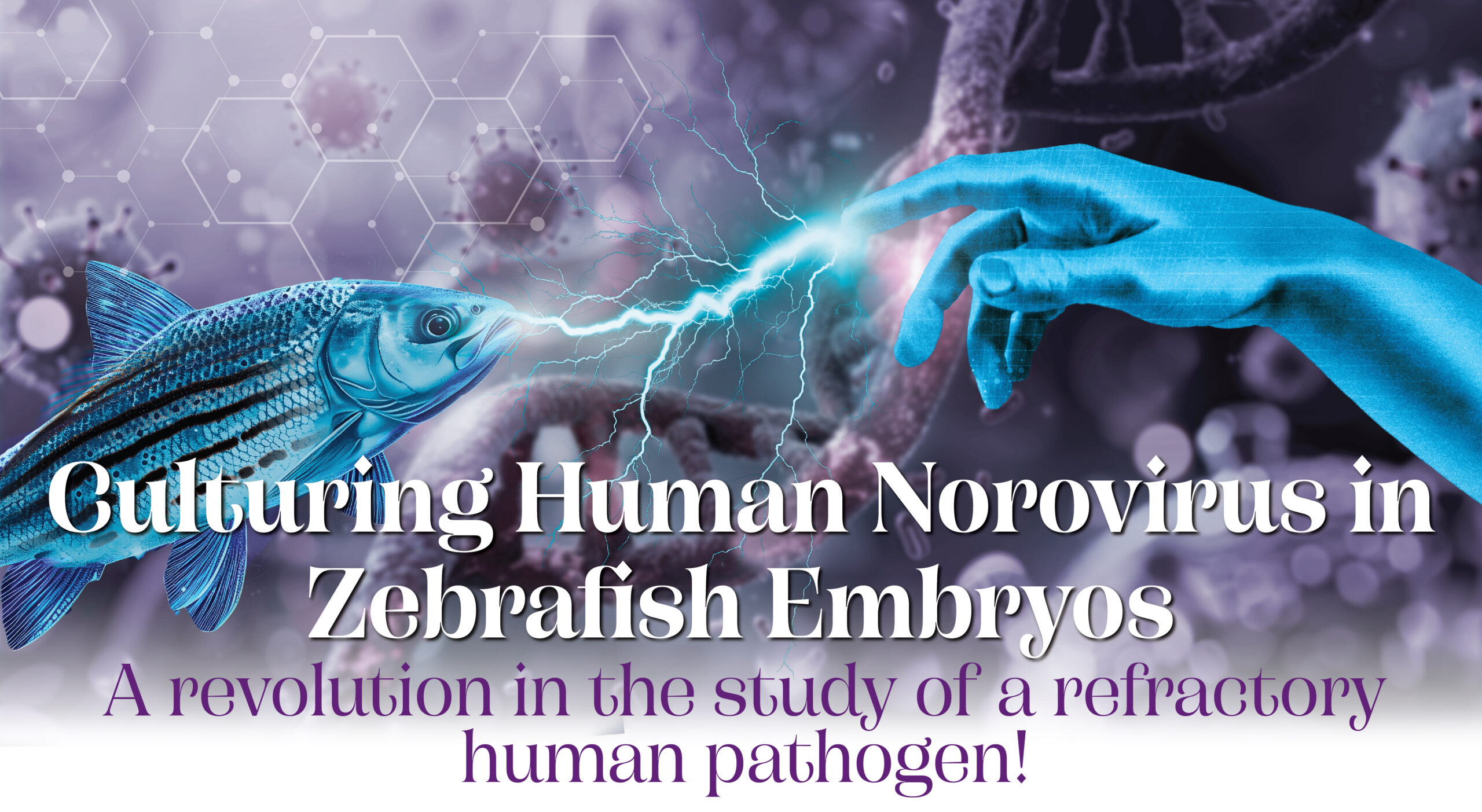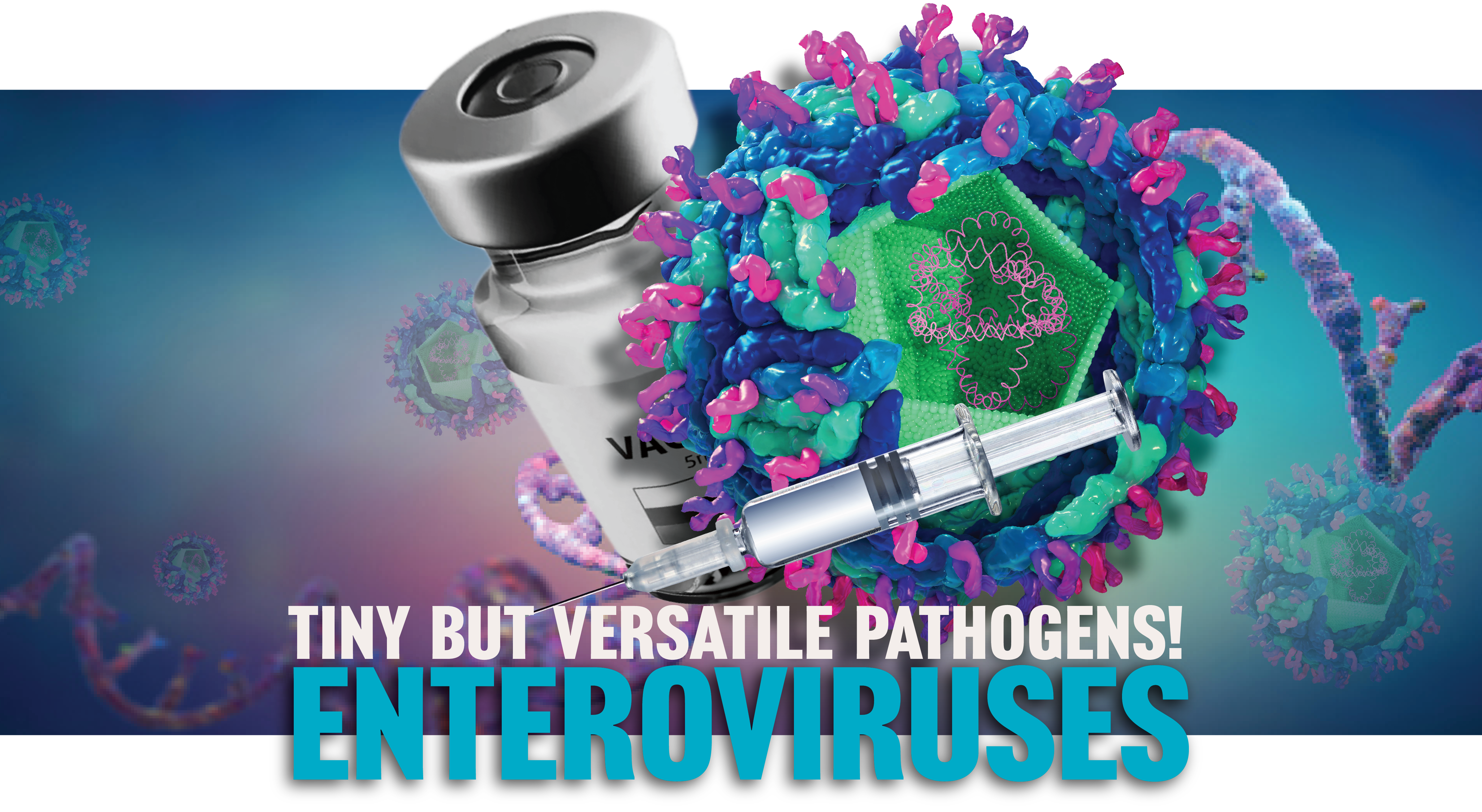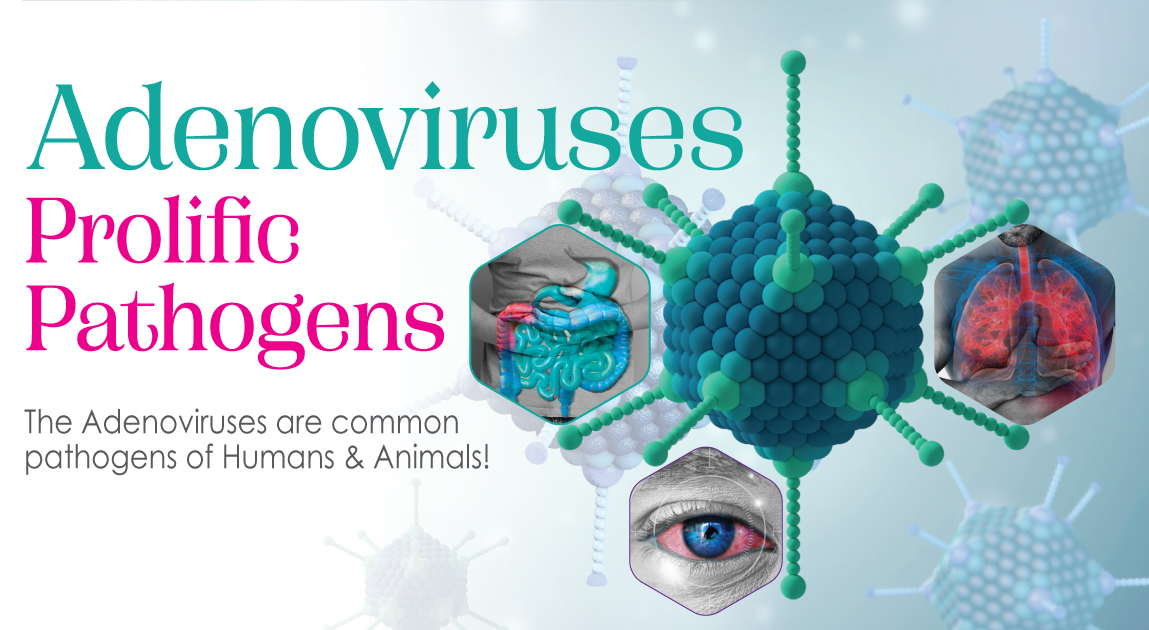Researchers from the National University of Singapore have recently found a revolutionary method to grow human norovirus (HuNoV) in zebrafish embryos (1). HuNoV, a common and worldwide cause of acute non-bacterial gastroenteritis, has been refractory to culture in vitro as well as in vivo. The use of zebrafish embryos for HuNoV culture promises to an important breakthrough.
The genus ‘Enterovirus’[1] belongs to the family Picornaviridae (‘pico’ meaning small) which comprises of icosahedral viruses (~30 nm in diameter) with single-stranded, positive-sense RNA genomes. As of 2020 (http://taxonomy.cvr.gla.ac.uk/PDF/Picornaviridae.pdf), the family contained 63 genera and 147 species, with many others still awaiting classification.
Adenoviruses (from Latin adenos meaning 'gland') are icosahedral (about 90 nm in diam.), nonenveloped, double-stranded DNA viruses with a wide host range (mammals, birds, reptiles, amphibians, and fish). Characteristic antennae-like fibers protrude from the virion surface give them the appearance of miniature satellites. Virus replication occurs inside the nucleus of infected cells.




